South Africa is said to be unlikely to comply with an ICC arrest warrant if President Putin visits the country, but that would severely damage its international reputation.
South Africa has just hosted the BRICS foreign ministers' meeting, an important step in preparation for the bloc's summit to take place in August in Johannesburg. BRICS includes five countries: Russia, China, India, Brazil and South Africa, accounting for more than 40% of the world's population and nearly a quarter of the world's GDP.
However, one issue that is giving South African officials a headache is how to deal with the arrest warrant issued by the International Criminal Court (ICC) for Russian President Vladimir Putin in case he comes to Johannesburg to attend the BRICS summit.
The arrest warrant was issued in mid-March when the ICC, based in The Hague, Netherlands, accused Mr. Putin and the Russian President's Commissioner for Children's Rights Maria Lvova-Belova of "illegally transferring" Ukrainian children to Russia during the conflict between the two countries.
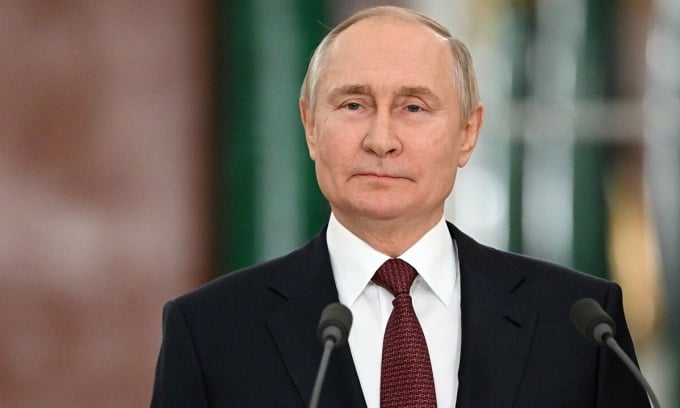
Russian President Vladimir Putin at a press conference at the Kremlin in Moscow, December 2022. Photo: AFP
Accordingly, the ICC asked 123 member countries, including South Africa, to arrest President Putin and transfer him to the Netherlands for trial if he set foot on their territory. However, in reality, not all countries complied with the court's ruling.
Moscow has called the ICC's arrest warrant meaningless. The United States and Russia used to join the ICC but withdrew and did not recognize the body. Some countries, such as China and India, do not join and do not recognize the ICC's authority. In 2016, then-South African President Jacob Zuma proposed withdrawing his country from the ICC, but later abandoned the idea.
Mr. Putin had accepted an invitation to attend the BRICS summit before the ICC issued the arrest warrant. Russia's TASS news agency reported on May 26 that Mr. Putin "has not withdrawn his decision to attend the summit," adding that "the Russian leader has been invited."
Kremlin spokesman Dmitri Peskov warned earlier this week that BRICS partners "should not be led astray by illegal decisions" such as the ICC arrest warrant.
However, if President Putin attends the BRICS summit in person, an arrest warrant from the ICC will put South Africa in a diplomatic dilemma, while creating controversy within the country itself.
South Africa’s left-wing parties have urged the government to withdraw from the ICC and welcome Mr Putin to the BRICS summit, while the leading opposition Democratic Alliance (DA) party has called on the government to enforce an arrest warrant for the Russian president if he visits South Africa.
South Africa has so far refused to condemn Russia’s campaign in Ukraine, saying it wants to remain neutral and prioritize dialogue to end the fighting. Earlier last month, President Cyril Ramaphosa said South Africa was facing “tremendous pressure” to choose sides in the conflict.
On May 30, the DA announced that it had filed a court application to ensure that the government would arrest the Russian leader and hand him over to the ICC "if President Putin sets foot in the country".
"This action is to ensure that South Africa complies with its obligations," said Glynnis Breytenbach, a senior DA official responsible for overseeing the activities of the Justice Department.
Meanwhile, Justice Minister Ronald Lamola said last month that South Africa would "explore various options" on how to apply ICC arrest warrants, including extending customary diplomatic immunity to visiting heads of state.
The DA’s legal action comes as the South African government granted diplomatic immunity to BRICS foreign ministers meeting this week in Cape Town and to leaders expected to attend the BRICS summit in August. Many saw this as a move to secure President Putin’s visit, but the South African government denied it.
"These immunities do not override any injunctions issued by international courts against conference participants," South Africa's foreign ministry said in a statement, adding that granting diplomatic immunity was "standard" procedure when hosting international conferences.
Dr Chido Nyere, an international relations expert from the Institute for Trans-African Thought and Dialogue at the University of Johannesburg, said it was highly unlikely that President Putin would be arrested in South Africa when he arrived there for the BRICS summit.
"The court can make a judgment on the legal aspect, but this is not a legal case. This is actually a political matter and the law has its limitations. This is a very complex case and the court has its limitations," he said.
"The United States, which seems to be exerting pressure to arrest President Putin, is not a party to the ICC," he added. "Any effort to arrest the Russian leader must be carried out on the basis of cooperation."
Professor Dire Tladi from the University of Pretoria's Faculty of Law said South Africa had no political incentive to enforce the ICC arrest warrant against Mr Putin. The country is keen to strengthen its role in BRICS and its relationship with Russia has also grown strongly in recent years.
In that context, the execution of the arrest warrant for President Putin would put South Africa-Russia relations on the brink and their role in the BRICS bloc would likely be erased.
But if it fails to comply with the arrest warrant, South Africa could face major legal and reputational problems internationally.
"If we receive an order from the international court declaring that President Putin must be arrested, then by law, when the Russian leader arrives, South Africa is obliged to arrest him and hand him over," Tladi explained. "If not, the question then arises as to whether South Africa is deliberately disregarding the ICC's decision."
Reuben Brigety, the US ambassador to South Africa, said the US "cannot understand" why the South African government has not publicly committed to complying with its obligation to implement the ICC decision regarding Mr. Putin's arrest warrant, which as a member it has a legal responsibility to do.
In 2015, South Africa allowed then-Sudan president Omar al-Bashir to visit the country, despite an ICC arrest warrant against him on charges of genocide. This move brought South Africa into the crosshairs of Western countries.
This time, the South African government is said to be looking for loopholes in the ICC arrest warrant to "circumvent the law" and be able to welcome the Russian President to attend the BRICS conference without causing any disturbance or criticism.
South Africa has set up a committee headed by Vice President Paul Mashatile to look into possible options for President Putin's visit and they believe a legal way forward may have been found.
Last month, South African officials said the government might focus on the fact that the ICC arrest warrant for President Putin did not originate from a UN Security Council referral, unlike the case for Sudanese President al-Bashir. This would allow them to argue that Mr Putin has immunity under “customary international law” because Russia is not a member of the ICC.
But according to Hannah Woolaver, associate professor of international law at the University of Cape Town, ICC member states do not have the right to ignore arrest warrants by making their own interpretations of the Rome Statute's immunity provisions. "That is ultimately for the ICC to decide," she said.
The Rome Statute of the ICC, adopted in July 1998 and entering into force in July 2002, obliges all member states to exercise criminal jurisdiction over international crimes.
South Africa will have to try to convince the ICC of the validity of its immunity argument under “customary international law”. However, ICC judges are unlikely to be convinced, having ruled against it in the case of former president al-Bashir.
“If member states refuse to execute arrest warrants based on such an interpretation, it would render any decision from the ICC null and void,” she said.
Mark Kersten, associate professor of criminal justice at the University of Fraser Valley, Canada, said that if South Africa did not execute the arrest warrant for Mr. Putin, it would be damaging to both the country and the ICC. It would “damage the credibility of the ICC, but perhaps more so the credibility of the South African court,” he said.
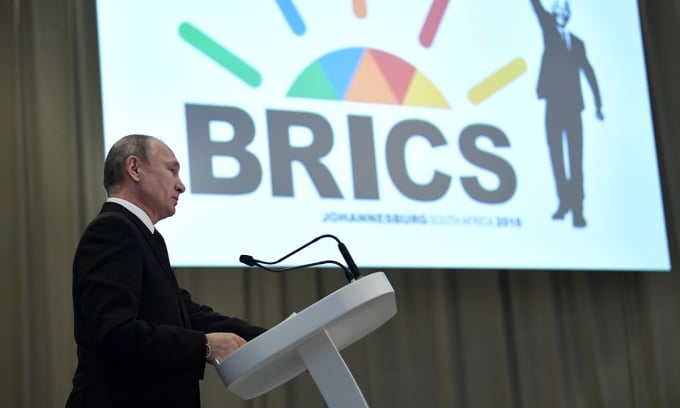
Russian President Vladimir Putin speaks during a press conference after the BRICS summit in Johannesburg, South Africa, in July 2018. Photo: Reuters
Any attempt to resist the arrest warrant could also damage South Africa's relations with the West and undermine its claims of neutrality in the Russia-Ukraine conflict, observers say.
"This will be evidence that South Africa is supporting Russia at a time when South African President Cyril Ramaphosa is trying to portray himself as a neutral mediator in his mission to make peace between Russia and Ukraine," Geoffrey York, a veteran commentator from Canada's Global and Mail newspaper, commented.
Observers say an alternative to South Africa would be for Putin to attend the BRICS summit via Zoom, but this is unlikely to be approved by the Russian president. British media reported that South Africa had considered allowing China, which is not a member of the ICC, to host the BRICS summit, but Russian Foreign Minister Sergey Lavrov denied the information.
This, observers say, has exacerbated South Africa’s dilemma. It has also raised big questions about whether BRICS, a group of large countries with very different economies, political systems and societies, can really reach a consensus in the face of such a dilemma.
Vu Hoang (According to Al Jazeera, Global and Mail, IOL )
Source link



![[Photo] Students of Binh Minh Primary School enjoy the full moon festival, receiving the joys of childhood](https://vphoto.vietnam.vn/thumb/1200x675/vietnam/resource/IMAGE/2025/10/3/8cf8abef22fe4471be400a818912cb85)

![[Photo] Prime Minister Pham Minh Chinh chairs meeting to deploy overcoming consequences of storm No. 10](https://vphoto.vietnam.vn/thumb/1200x675/vietnam/resource/IMAGE/2025/10/3/544f420dcc844463898fcbef46247d16)


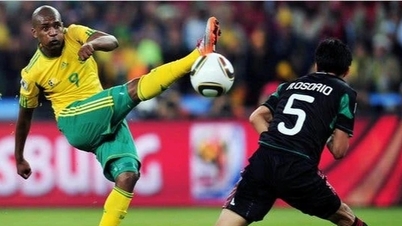





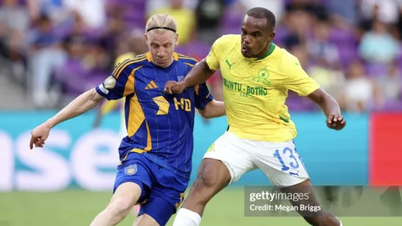

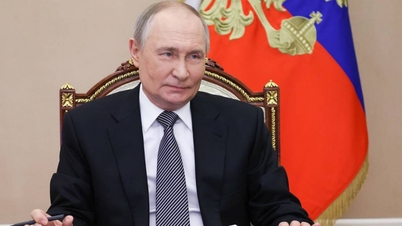


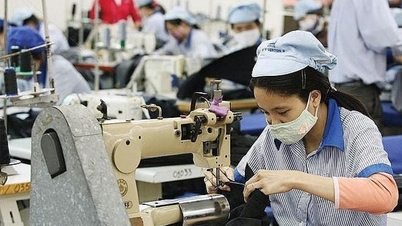

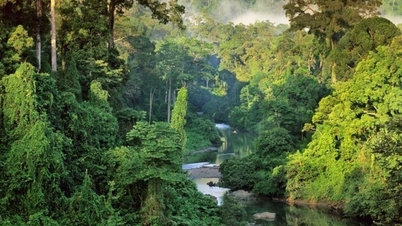
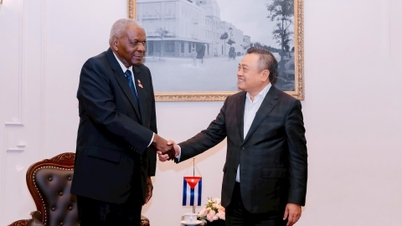
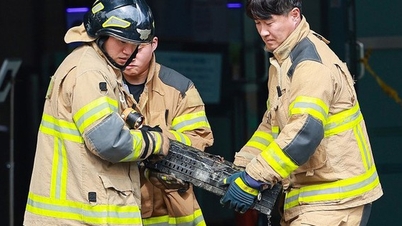

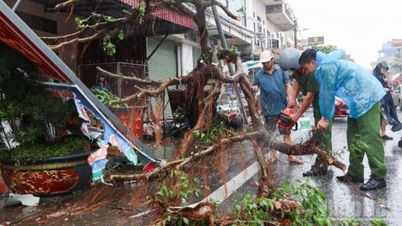
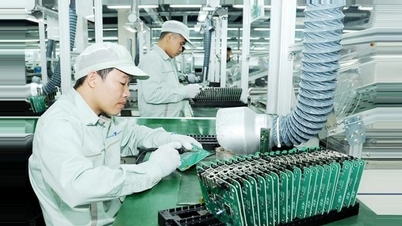


















































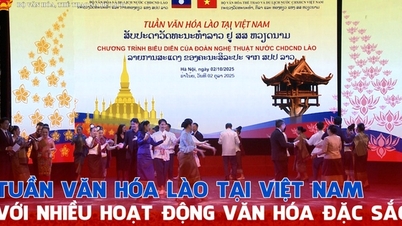

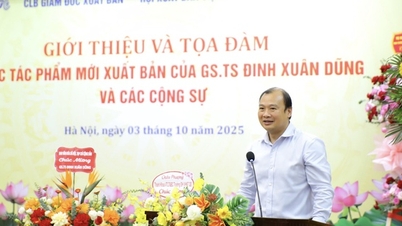


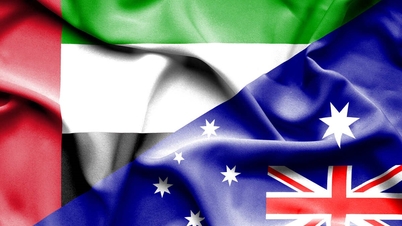
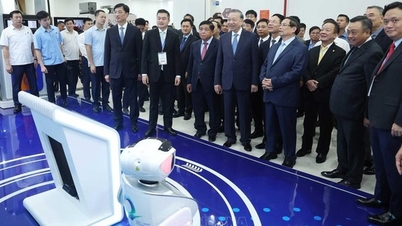

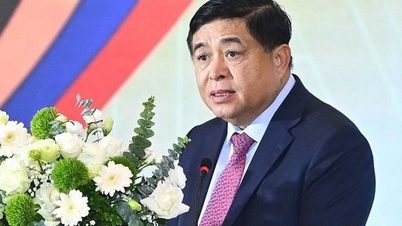
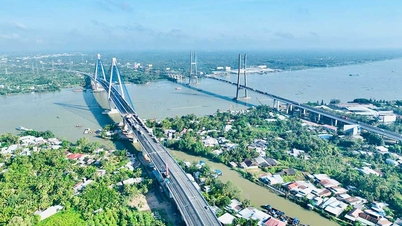



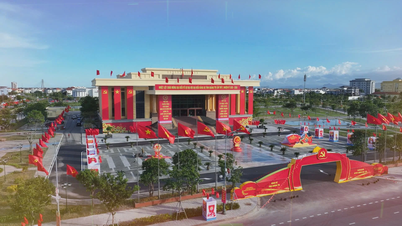
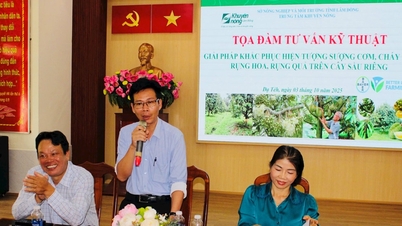

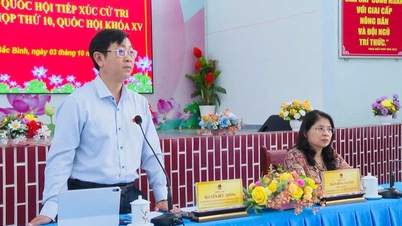














Comment (0)